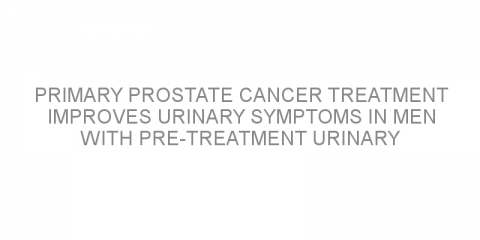In a nutshell This study examined erectile function following treatment of prostate cancer with focal therapy. Researchers reported a return of erectile function from 6 months after focal therapy. Some background Surgery and radiation are first-line treatments for localized (confined) prostate cancer. In some cases, focal therapies are recommended...
Read MoreCurrent stage?-Stage I Posts on Medivizor
Blood factors that could predict metastasis in stage 1 and 2 melanoma
In a nutshell This study investigated proteins (blood factors) in patients with early-stage melanoma that identify those at a high risk of experiencing metastasis (cancer spread) after surgery. Researchers suggested that tumor stage and proteins such as vitronectin (VN) and dermcidin (DCD) levels were associated with the metastatic progression of...
Read MoreChanges over time in the risk of recurrent NSCLC after surgery
In a nutshell This study examined the risk of recurrence following early-stage non-small cell lung cancer (NSCLC) treated with surgery. The authors showed that the risk of relapse after surgery changes in a predictable way over time, where the first two years after surgery has the highest risk of relapse. They noted that the risk then declines but...
Read MoreWhen should radiotherapy be administered in combination with chemotherapy?
In a nutshell The authors aimed to determine when radiotherapy should be administered, during chemotherapy-radiotherapy adjuvant treatment in patients with limited small-cell lung cancer (SCLC). They concluded that radiotherapy increases the survival rate if it is administered early during chemotherapy treatment. Some background For SCLC,...
Read MorePrimary prostate cancer treatment improves urinary symptoms in men with pre-treatment urinary complications
In a nutshell The authors aimed to determine the benefits and drawbacks of prostate cancer treatment in patients who suffer from pre-treatment urinary problems. The authors concluded that patients with pre-treatment urinary problems benefitted from prostate surgery. Some background Prostate surgery involves surgically removing the prostate...
Read MoreDifferent radiation therapy schedules: Hyopfractioned EBRT is as effective as standard EBRT
In a nutshell This study compared the safety and effectiveness of external beam radiation therapy (EBRT) and hypofractioned EBRT (H-EBRT) for localized prostate cancer. Researchers reported no differences in survival or disease recurrence rates between high H-EBRT and EBRT. Some background Radiation therapy is a common treatment for localized...
Read MoreExamining the rate of disease upgrading during active surveillance
In a nutshell This study analyzed the rates of disease upgrading after biopsy (tissue sample) tests in men with low-risk prostate cancer. Researchers concluded that men with low-risk prostate cancer have a very low risk of being upgraded during active surveillance. Some background Most men diagnosed with prostate cancer are categorized as low...
Read MoreFocal prostate radiotherapy in early prostate cancer
In a nutshell The main objective of this study was to review all data available on focal radiotherapy (FRT) for men with early prostate cancer. The authors concluded that FRT was an option in early prostate cancer but may not be as effective in intermediate-risk tumors. Some background Radiation therapy is an important part of prostate cancer...
Read MoreDoes radiotherapy after lumpectomy improve survival rates in older women with ER- early-stage breast cancer?
In a nutshell This study investigated whether radiotherapy with lumpectomy (where only part of the breast is removed) in older women with estrogen receptor-negative (ER-) breast cancer would improve survival rates. For women over 70 years with ER- early-stage breast cancer, lumpectomy and radiotherapy improved overall survival rates and...
Read MoreIs not undergoing surgery a safe treatment option in rectal cancer treatment?
In a nutshell This study investigated the outcomes of rectal cancer patients with complete or near-complete response to chemotherapy and radiation therapy (CRT) who do not undergo surgery. Researchers reported that not undergoing surgery, in selected patients, is a safe option for treatment of rectal cancer. Some background The standard...
Read MoreHormone therapy may shorten survival in African American men with low- or intermediate-risk prostate cancer
In a nutshell This study examined the effect of ethnicity on health outcomes with androgen deprivation therapy (ADT). Researchers reported shorter survival among African American men receiving ADT for low- or intermediate-risk prostate cancer compared to men of other ethnicities. Some background ADT is a type of hormone therapy used to treat...
Read MoreEvaluation of the probability of melanoma-specific mortality and non-cancer mortality
In a nutshell This study investigated the probability of melanoma-specific mortality and mortality by other causes in melanoma patients. Researchers suggested that an individualized study of each patient probability helps treatment-related decision making. Some background The majority of patients with non-metastatic (spread to other parts of the...
Read More














